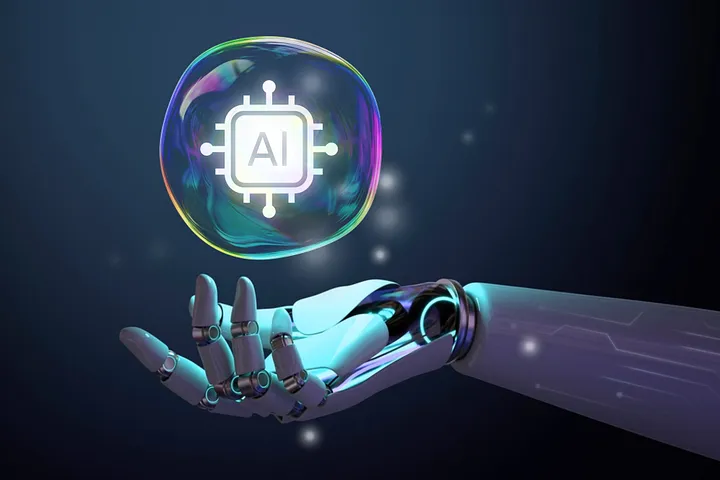
Artificial Intelligence (AI) is transforming the world — from how we work and communicate to how we shop, learn, and make decisions. But what exactly is AI, and why is it so important? If you’re new to the concept, this beginner-friendly guide will walk you through the basics of AI, its origins, key concepts, and real-world applications.
What Is Artificial Intelligence?
Artificial Intelligence refers to the simulation of human intelligence in machines that are programmed to think, learn, and problem-solve like humans. AI systems can perform tasks such as recognizing speech, making decisions, understanding language, and even driving cars — all without human intervention.
In simple terms, AI is about creating software or machines that can perform tasks we usually associate with human thinking.
A Brief History of AI
The concept of AI is not new. Here’s a brief timeline to help you understand how it evolved:
- 1950s – The Birth of AI: British mathematician Alan Turing proposed the idea of machines that could “think.” His famous Turing Test was developed to evaluate a machine’s ability to mimic human intelligence.
- 1956 – The Term ‘Artificial Intelligence’ is Coined: At a conference at Dartmouth College, the term Artificial Intelligence was officially introduced, marking the beginning of AI as a field of study.
- 1970s–80s – Early Development: AI faced both progress and setbacks. Researchers developed early algorithms, but limitations in computing power stalled significant progress.
- 2000s–Present – AI Renaissance: The rise of big data, cloud computing, and machine learning (a type of AI) has propelled AI into mainstream use across industries.
Key Concepts in AI
To understand AI better, here are some important terms to know:
1. Machine Learning (ML)
Machine Learning is a subset of AI where machines learn from data without being explicitly programmed. The more data the system receives, the better it gets at making predictions.
Example: Email spam filters learn which messages are spam by analyzing thousands of examples.
2. Deep Learning
A more advanced type of machine learning inspired by the structure of the human brain. It uses neural networks to perform complex tasks like image and speech recognition.
Example: Face recognition on your smartphone uses deep learning.
3. Natural Language Processing (NLP)
NLP allows machines to understand and interpret human language.
Example: Voice assistants like Siri and Alexa use NLP to understand commands.
4. Computer Vision
This enables machines to see and interpret visual information.
Example: Self-driving cars use computer vision to detect lanes, signs, and obstacles.
Real-Life Applications of AI
AI is already integrated into many aspects of daily life — often without us realizing it. Here are some common examples:
● Healthcare
AI helps doctors analyze medical images, predict diseases, and personalize treatment plans.
● Finance
Banks use AI to detect fraud, automate customer service, and assess credit risk.
● Retail
AI recommends products, predicts inventory needs, and enhances online shopping experiences.
● Education
AI powers adaptive learning platforms that personalize content based on each student’s progress.
● Transportation
From navigation apps to autonomous vehicles, AI is reshaping how we move.
● Entertainment
Platforms like Netflix and Spotify use AI to recommend shows and songs based on user preferences.
Is AI Safe and Ethical?
As AI continues to grow, so do concerns about privacy, bias, and job displacement. AI systems must be developed responsibly, with strong ethical guidelines to ensure fairness and transparency.
- Bias in AI: If AI is trained on biased data, it may produce unfair or discriminatory results.
- Job Automation: AI may replace certain routine jobs, but it also creates new roles in technology, data analysis, and ethics.
- Privacy: AI-powered tools often require large amounts of personal data, raising questions about data protection.
Governments and organizations around the world are working on AI regulations and ethics frameworks to ensure AI benefits society.
Why AI Matters Today
AI isn’t just a futuristic concept — it’s a powerful technology shaping today’s economy and society. Whether you’re a student, professional, or simply curious, understanding the basics of AI is becoming essential.
- It helps businesses grow more efficiently.
- It aids in solving global challenges (like climate change and disease prevention).
- It offers exciting career opportunities in fields like data science, AI development, and robotics.
Final Thoughts
Artificial Intelligence is not something to be feared but understood. As AI becomes more embedded in our everyday lives, having a solid grasp of its concepts and uses is valuable for everyone — not just tech experts. Whether you’re exploring a career in tech or just want to stay informed, learning about AI is a smart step toward understanding the future.





